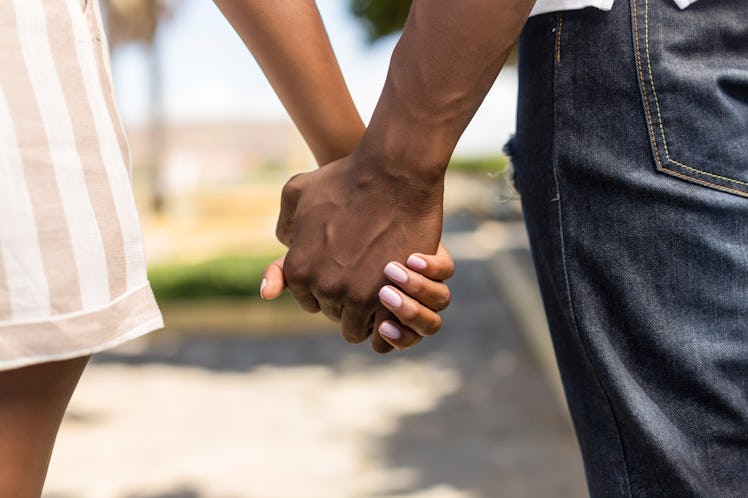
Here's The Difference Between Wanting, Needing, & Loving Somebody
Recently a close friend called to tell me that she's breaking up with her fiancé, who she has been with for six years.
They got engaged just last year and were even planning to buy a new house together.
I was surprised because her relationship seemed “perfect” — they met during their freshman year of college and he was her first love; they traveled the world together and kept up a successful long-distance relationship; he proposed once they reunited and lived in the same city again. Everything seemed like it was going according to plan. But then, like a cruel twist of fate, things began to change. My friend wasn't sure if she wanted, needed, or loved her partner anymore.
“How do you know if you are still in love with someone, or if you're staying because of the familiarity?” she asked me.
At the time, I was pretty taken aback by her frankness. “Give me a moment to think about it. I want to give a clear answer to you,” I replied. And, after a minute or two of awkward silence on the phone, this is how I broke it down for her:
There's a difference between wanting somebody, needing somebody, and loving somebody.
Nina Rubin, a life coach and psychotherapist, backs me up: each of those three dynamics is distinct, she tells Elite Daily, and while they might overlap, they don’t always.
“I often think of wanting someone as a passion play, or a seduction, or even a deep lust,” she explains. “The behaviors may be very strong at first [because you want] to get to know someone quickly so you can know everything about them. You can’t get enough.”
Just because you can't get enough of someone now, though, doesn't mean that they'll fulfill you over time, or that they'll satisfy you for the right reasons. "An emotional want is something you desire, but don't need for your long-term sense of happiness," Clarissa Silva, behavioral scientist, relationship coach and creator of Your Happiness Hypothesis Method, tells Elite Daily. "Jealousy and FOMO are the most common reasons that people will be determined to seek out what they want and not necessarily what they need."
This is the instant pull you might feel toward somebody after an amazing first date. It’s like a crush — only magnified. This is a healthier version of “needing” someone, Rubin says.
“I think of neediness as a sign that you want someone to ‘complete’ you,” she says. “Needing someone can be a sign of codependency or learned helplessness. We forget we are OK and thriving on our own and instead put our beliefs on someone else.”
There’s nothing wrong with needing your significant other to pick up some medicine for you at CVS when you’re stuck in bed with a cold, or needing help reaching a book on the highest shelf. Needing a little help here and there is a perfectly normal part of being human. But if you feel you truly need someone in your life to provide you with confidence or happiness, that might be a sign of codependency.
Love, on the other hand, has roots in a neurochemical process that creates feelings of euphoria, Silva explains, describing it as "intoxicating" and "intense." Meanwhile, Rubin describes “love” as a verb, not a noun. A person can demonstrate love through their actions in addition to feeling a specific emotion.
“Love is an action as much as a word,” Rubin explains. “Love is shown by treating someone kindly and with respect. It’s allowing yourself to be seen and to be cared for also.”
In other words, you can want to spend all your free time with someone… while showing them how much you love them by treating them with care and affection. Needing someone is about receiving attention, while loving someone is about giving attention.
Of course, when you’re caught in a swirl of emotions, it’s not always quite so simple to put a label on how you’re feeling. There’s no pressure to name your emotions, either. Enjoy the process of falling for someone, whatever form that may take.
Additional reporting by Hannah Orenstein.